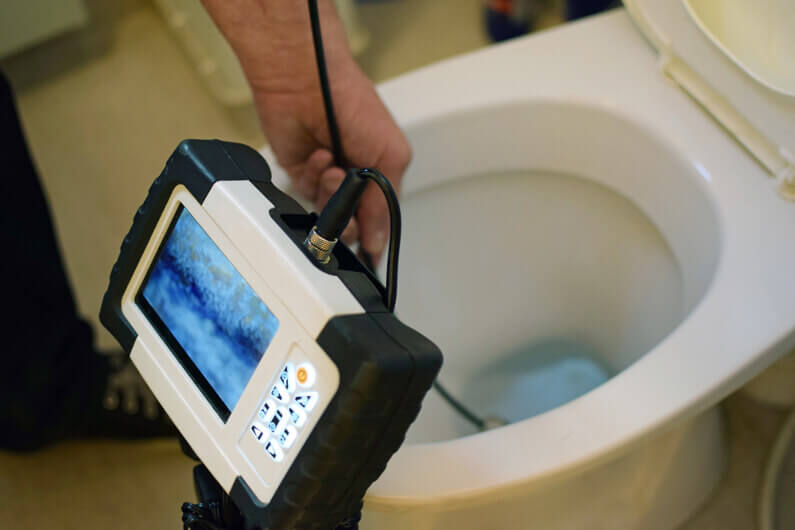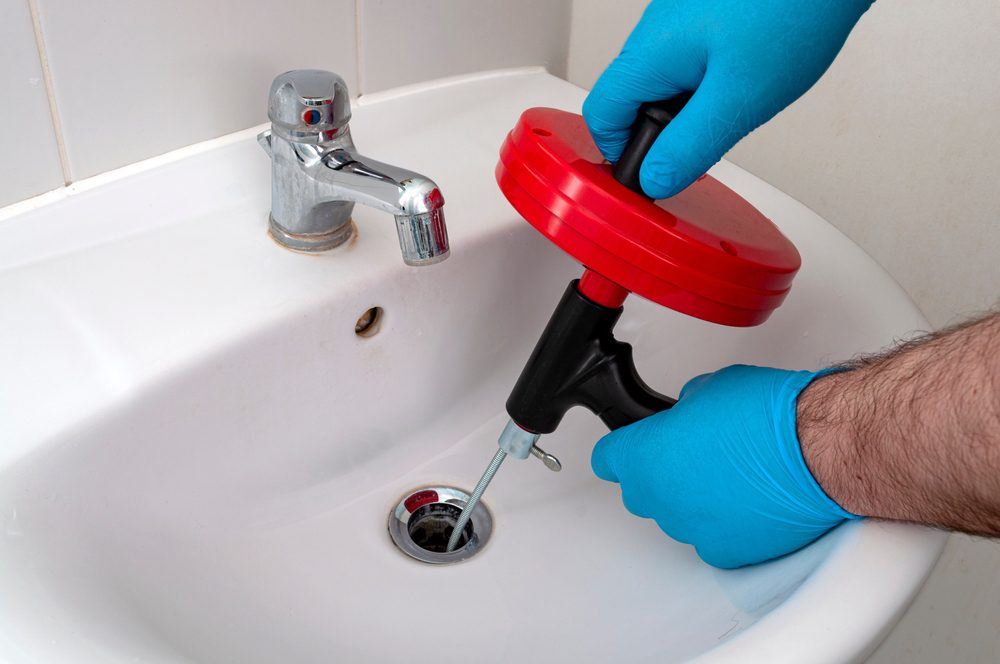Steps to Take for Fixing a Blocked Drain Prior to Contacting Experts
Steps to Take for Fixing a Blocked Drain Prior to Contacting Experts
Blog Article
The publisher is making a few great pointers about How to handle a clogged drain in your home in general in this post below.

Introduction
Dealing with an obstructed drainpipe can be an irritating experience, interfering with everyday tasks and possibly causing damages to your home. However, before connecting to pipes professionals, there are steps you can require to address the problem on your own. In this guide, we'll discover do it yourself services and safety nets to deal with a blocked drain successfully.
Identifying the Issue
The primary step in resolving an obstructed drainpipe is acknowledging the signs. Sluggish water drainage, gurgling audios, foul odors emanating from drains, or water support up are common signs of a blocked drainpipe. Identifying these signs early can aid avoid even more complications.
Typical Root Causes Of Obstructed Drains
Recognizing the elements that add to drain obstructions is crucial for efficient resolution. Typical culprits include hair, soap scum, oil, food debris, and foreign things like hygienic items or paper towels. Tree roots invading underground pipelines can also trigger significant obstructions.
DIY Solutions
For minor clogs, numerous DIY options can be efficient. Putting boiling water down the drain can aid dissolve grease and particles. Sodium bicarbonate and vinegar or a mixture of salt and cooking soda can serve as all-natural cleansers. Using a bettor or pipes serpent to remove obstructions is an additional option.
Devices and Devices
Having the right devices handy can make DIY drain cleaning much more reliable. A plunger is a functional tool for removing clogs in sinks, bathrooms, and showers. A plumbing serpent or auger can reach much deeper obstructions, while drain cleaning chemicals can be used very carefully for stubborn blockages.
Safety nets
To avoid future clogs, embracing safety nets is essential. Install drainpipe guards or strainers to capture hair and debris prior to they get in the pipes. Consistently flush drains with warm water to liquify oil accumulation, and stay clear of disposing of oil or strong waste down the tubes.
When to Call a Professional
While DIY options can fix small obstructions, certain indications suggest the need for professional aid. Consistent blockages, foul odors in spite of cleansing initiatives, or multiple drains supporting simultaneously are warnings that warrant skilled treatment.
Picking the Right Plumbing Service
When selecting a pipes solution, consider aspects such as experience, licensing, and client reviews. Select a credible plumber with a performance history of top quality workmanship and clear pricing practices.
Price Considerations
The cost of professional drain cleaning services can differ depending on the seriousness of the clog and the plumbing's rates. Request quotes from multiple providers and inquire about any type of additional charges to ensure openness and prevent shocks.
Security Measures
When attempting DIY drainpipe cleaning, focus on security. Put on protective gloves and eyewear to stay clear of contact with harmful chemicals or microorganisms. Never mix various drainpipe cleaning items, as this can generate harmful fumes.
Case Studies
Real-life instances show the performance of DIY remedies and the significance of prompt specialist treatment in settling drainpipe clogs.
Final thought
By complying with the pointers outlined in this overview, you can properly deal with blocked drains and prevent future pipes concerns. Whether opting for do it yourself options or looking for specialist help, prompt action is vital to maintaining a healthy plumbing system and maintaining the integrity of your home.
How to Clear a Clogged Drain Yourself (And When to Call In the Professionals)
What Can Clog a Drain
Dirt Skin flakes Hair Grease Soap scum Food Offset pipes Tree roots Small objects Mineral buildup DIY Tricks to Unclog a Drain
You can fix this! Once you have identified the source of the clog (or have a vague idea), you can try one or a combination of these fixes in order to clear your plumbing.
Wire Hanger or Snake
Untangle and clear out hair from a drainpipe with a homemade snake. Use a straightened-out wire hanger with a 90-degree angle hook to locate the clog and drag out any unwanted material.
Remember not to push the clog further down to where the wire hanger cannot reach! If you need to follow up with a plunger, give it a try. Your efforts might be more successful after it’s been wire-snaked.
If you want to get fancy and don’t have a wire hanger to spare, head to the store and pick up a hand-operated drain snake. You can get one for $10-$30. It may save you the hassle, and provide additional length to reach deep into the clogged pipe.
Plunger
A cup plunger has a suction cup attached to a wooden handle. The rubber creates a seal around the drain, and increases the pressure force of the plunger.
Plunge for 30-second increments to loosen the clog. This may need to be repeated over the course of 15-20 minutes. Once plunged, run the water to flush the remaining material out of the drain.
Remember– never use a plunger if you have used a chemical drain cleaner. These chemicals can splash up from the force of the plunger and cause serious injury or burns.
Boiling Water
Hot water can sometimes break up materials into a flushable amount. Dirt, grease, and soap buildup requires heat in order to unstick from surfaces.
Take your kitchen kettle and heat your water to a boil. Once it reaches a rolling boil, pour it directly down the drain into the blockage. Carefully follow with plunging, if necessary.
Don’t worry if this takes more than one try! It can often take multiple kettles and repeated plunging in order to clear a particularly stubborn clog.
Chemical Drain Cleaner
As a last resort, pick up a bottle of chemical drain cleaner. Drain-cleaning chemicals are potent, and not very good for the environment.
You may need to wear protective eyewear in gloves before handling your bottle of chemical drain cleaner. Follow the instructions printed on the bottle, and flush with water as soon as the instructions allow. Do not follow with plunging.
Baking Soda and Vinegar
As a safer alternative to chemical drain cleaner, baking soda and vinegar can create a chemical reaction that clears tough clogs.
Combine one cup of cleaning vinegar with one cup of boiling water, and set aside. Once you have done this, pour half a cup of baking soda down the drain. Give the baking thirty seconds to settle and cover a large portion of the problem drain.
Following the baking soda, pour down your vinegar and hot water solution. Once the vinegar and baking soda combine, the mixture will bubble and fix. Let this reaction fizzle in the drain for about an hour.
After an hour, follow with a kettle’s worth of hot water. The heat and liquid should flush out any remaining material.
When to Call a Plumber
If your DIY attempts haven’t cleared your clog drain, it’s time to call in a professional. It’s not worth losing access to your kitchen sink or high-traffic bathroom. A clog in a vital area can keep you from the things you’d rather be doing, and derail your routine.
Anytime a clog is causing water to spread is a time to call in a plumbing service. What starts out as a little bit of water can quickly grow into serious, expensive water damage.
Additionally, a serious clog can result in burst pipes or serious leaks. Make sure you know when to take it seriously!
https://myguysnow.com/how-to-clear-a-clogged-drain-yourself-and-when-to-call-in-the-professionals/

I was shown that report about from an acquaintance on another blog. Sharing is good. Who knows, you may very well be helping someone out. We enjoy reading our article about What I learned from trying to deal with a clogged drain.
Call Today Report this page